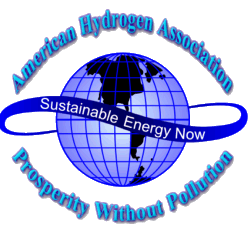

|
| Open Menu |
| Local page - | New energy menu - | Science and Technology - | Economy menu - | Food & Restaurants - | General menu |
| More classified links |
Fuel Cells 2000 |
"The National Fuel Cell Research Center |
Hydrogene Energy Center |
Technology Transition Corporation (TTC) |
The Fuel Cell and Hydrogen Energy Association (FCHEA) |
International Energy Agency (IEA) Implementing Agreement on Advanced Fuel Cells. |
 |
"The Fuel Cells and Hydrogen Joint Undertaking (FCH JU) is a unique public private partnership supporting research, technological development and demonstration (RTD) activities in fuel cell and hydrogen energy technologies in Europe. Its aim is to accelerate the market introduction of these technologies, realising their potential as an instrument in achieving a carbon-lean energy system. |

The California Fuel Cell Partnership |
The Partnership for Advancing the Transition to Hydrogen |
International Partnership for Hydrogen and Fuel Cells in the Economy |
 |

The Canadian Hydrogen and Fuel Cell Association |

FuelCellEurope |
|
Hydrogen Fuel Cars
|
The Hydrogen and Fuel Cells Interagency Working Group consists of participating federal agencies that exchange information about hydrogen and fuel cell research, development, and demonstration projects and collaborate on related activities. |
 |
The International Association for Hydrogen Energy (IAHE) |

"The purpose of AHA is to facilitate achievements of prosperity without pollution and to close the information gap between researchers, industry and the public, drawing on world-wide developments concerning hydrogen, solar, wind, hydro, ocean and biomass resource materials, energy conversion, wealth-addition economics, and the environment. |

UK Hydrogen and Fuel Cell Association |
The Australian Association for Hydrogen Energy (AAHE) |

The Defense Logistics Agency (DLA) commissioned a study in 2004 to investigate the use of hydrogen as a logistics fuel. Advancements over the past two decades in hydrogen and fuel cell technologies have been promising. Hydrogen and fuel cell technologies offer potential solutions to energy challenges related to the environment, energy security, sustainability, and battlefield logistics. DLA is committed to improving the viability of these technologies for widespread use in Department of Defense domestic operations through pilot projects involving material handling equipment (MHE), bus, and infrastructure demonstration projects; a portable power pilot project; solid hydrogen storage R&D; and an extended range utility vehicle R&D initiative. |
The Hydrogen and Fuel Cells Program |

The Fuelcell Propulsion Institute |

A Totally Integrated Fuel Cell Ecosystem |
"CFCC seeks to advance fuel-cell research, development, and commercialization and to promote business opportunities in Colorado. The CFCC was created in 2005 with funding from the Governor's Energy Office and co-funding from four partnering organizations. In July 2006 the CFCC was granted status as a Colorado School of Mines research center. |

The Colorado Fuel Cell Center (CFCC) |
Clic
for your Research of books on Amazone about: Fuel Cells Thechnology |
|
Amazone : New energy - Hydrogen energy
- Hydrogen energy - Solar Hydrogen Energy
- Solar Hydrogen Energy
|
|
| Directories : | Yahoo: Electrochemical Energy - Fuel Cells - Science Fuel Cells MSN: Fuel Cell Energy Demoz: Hydrogen - Fuel Cell |
 
Copyright WaoLine, The Internet Interactive and Dynamic Visual Directory |